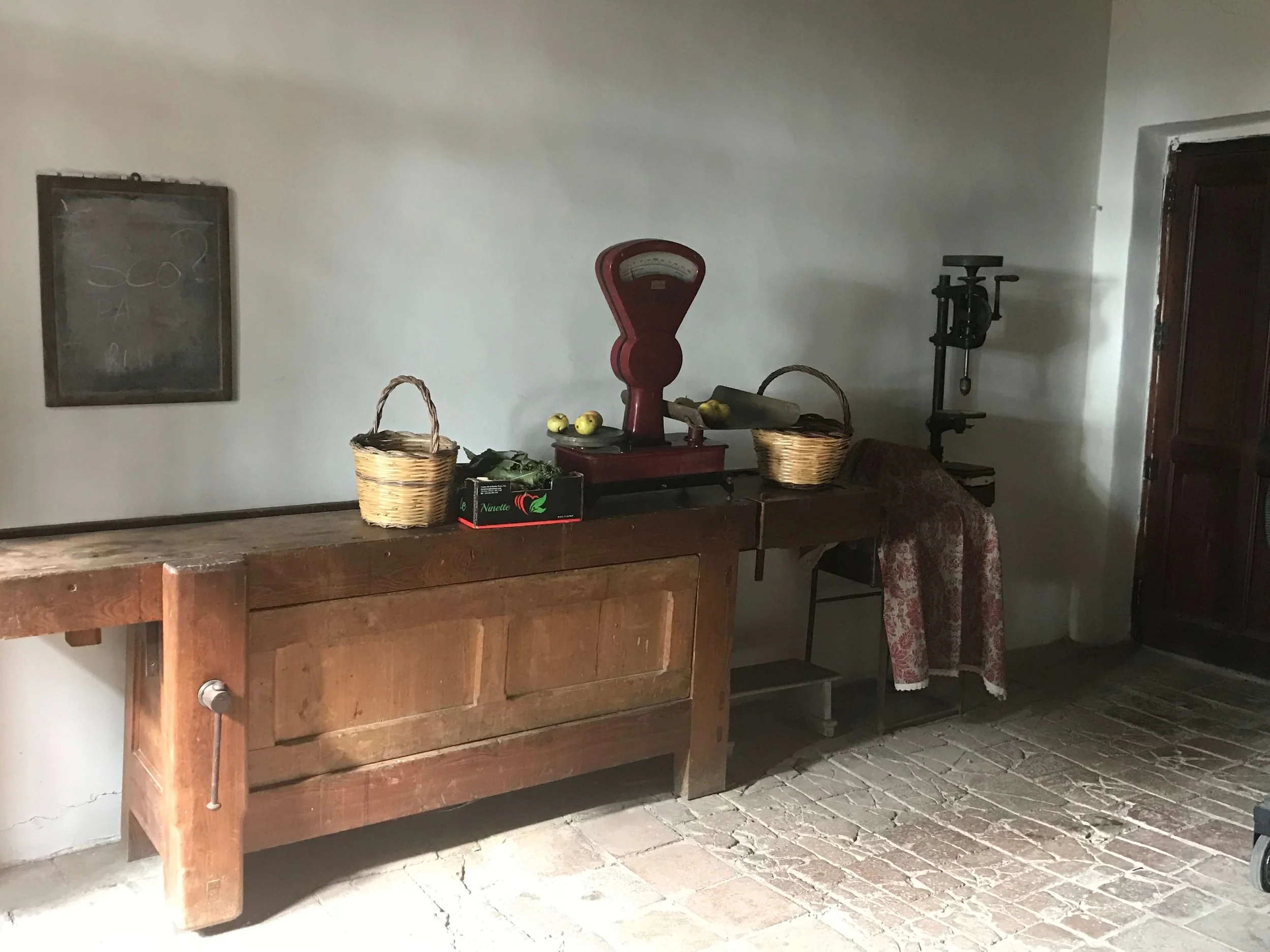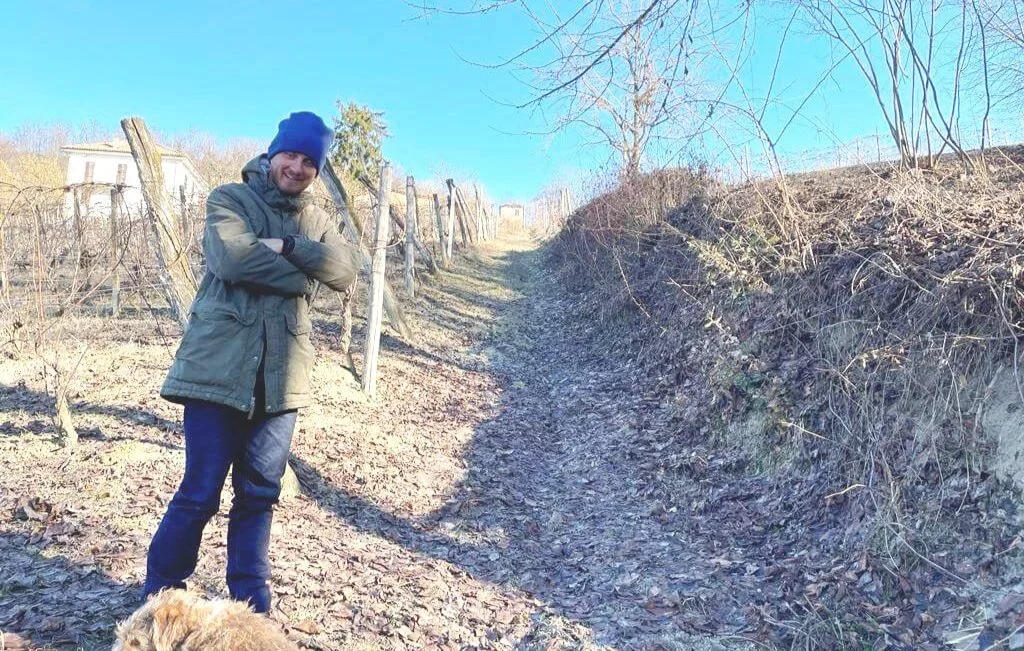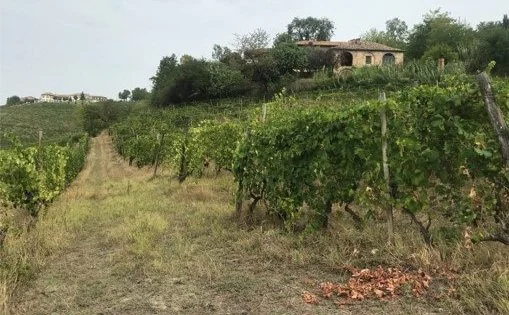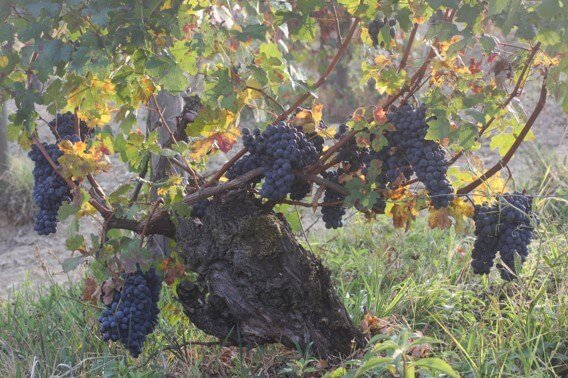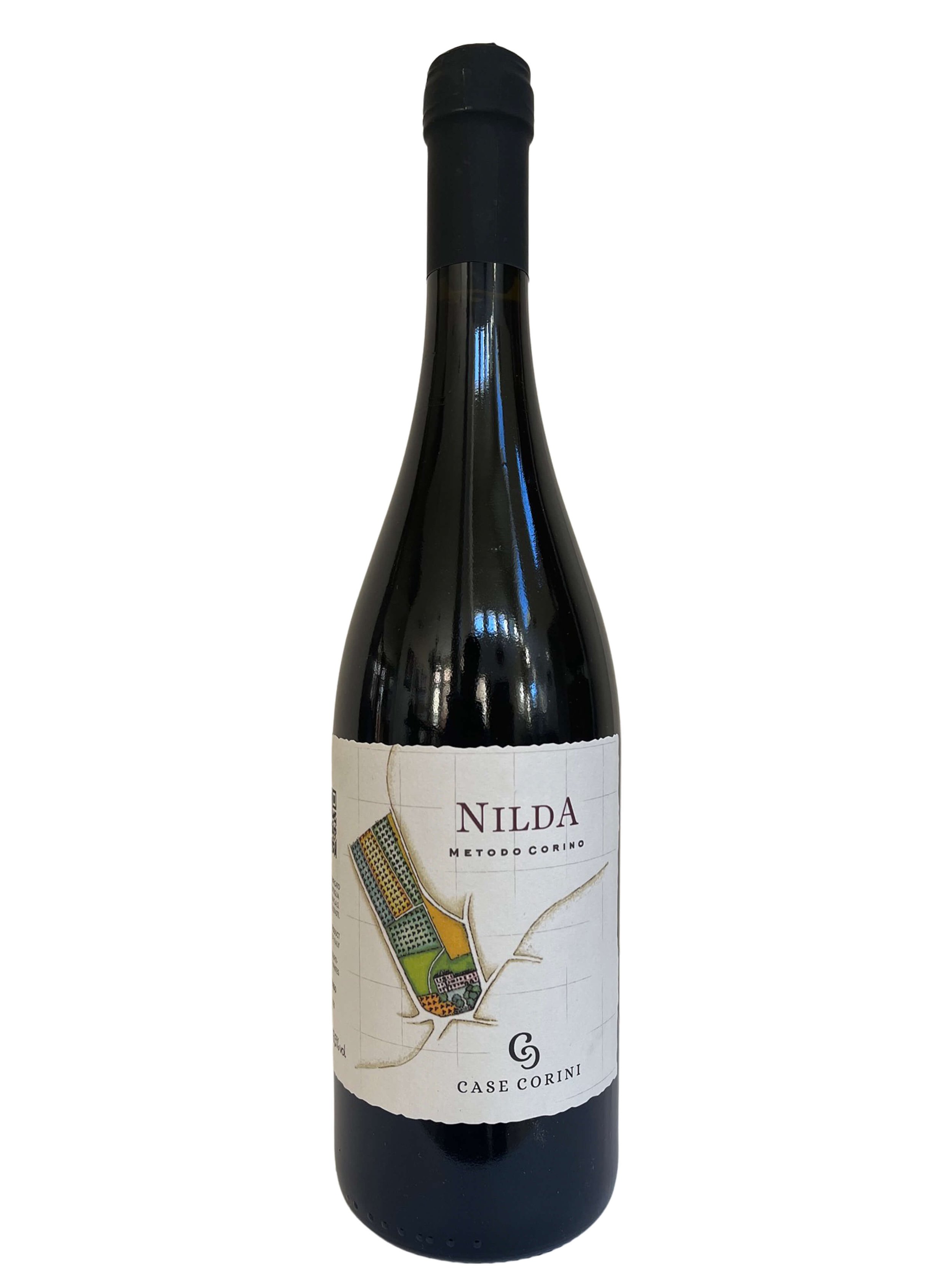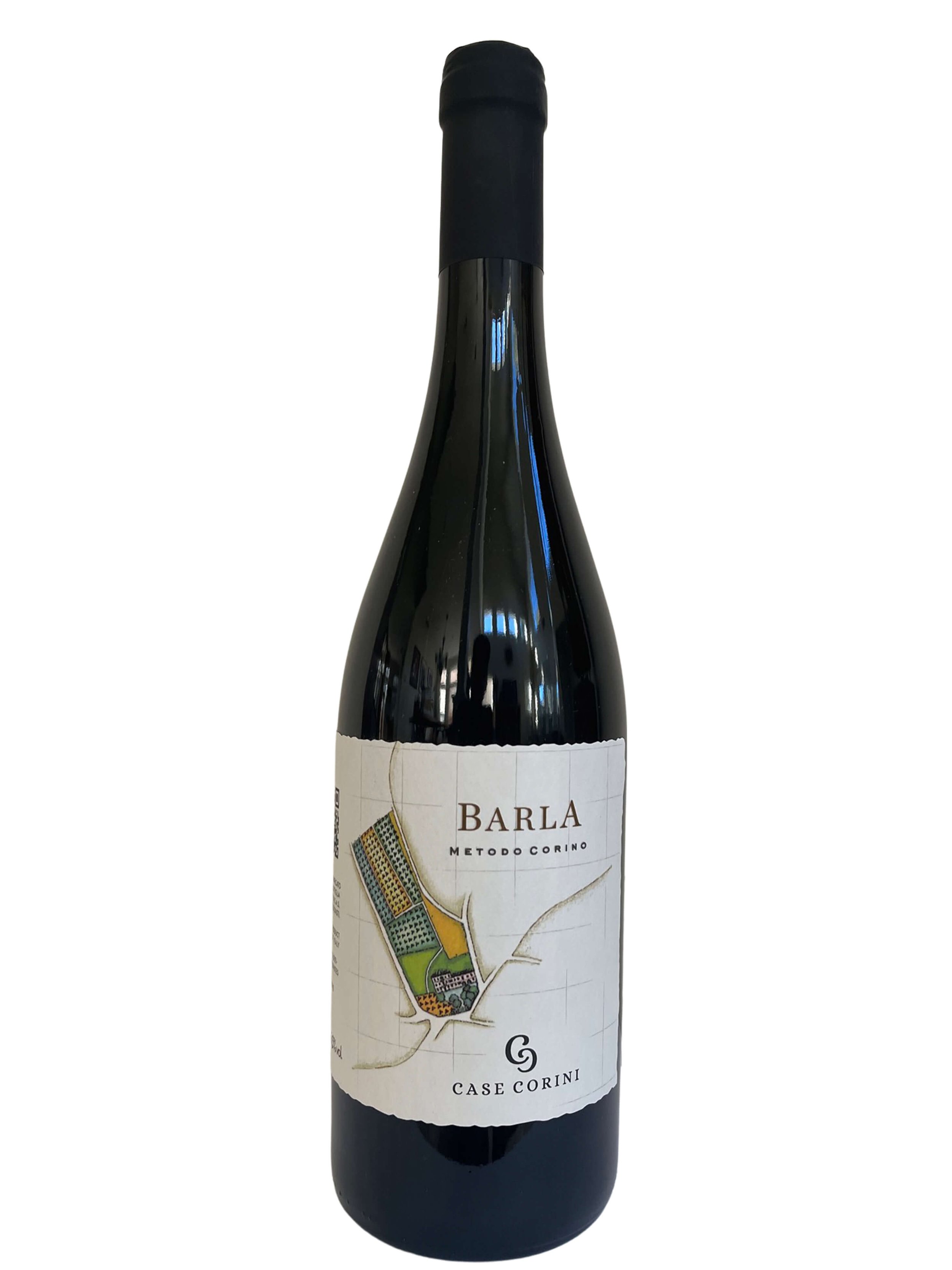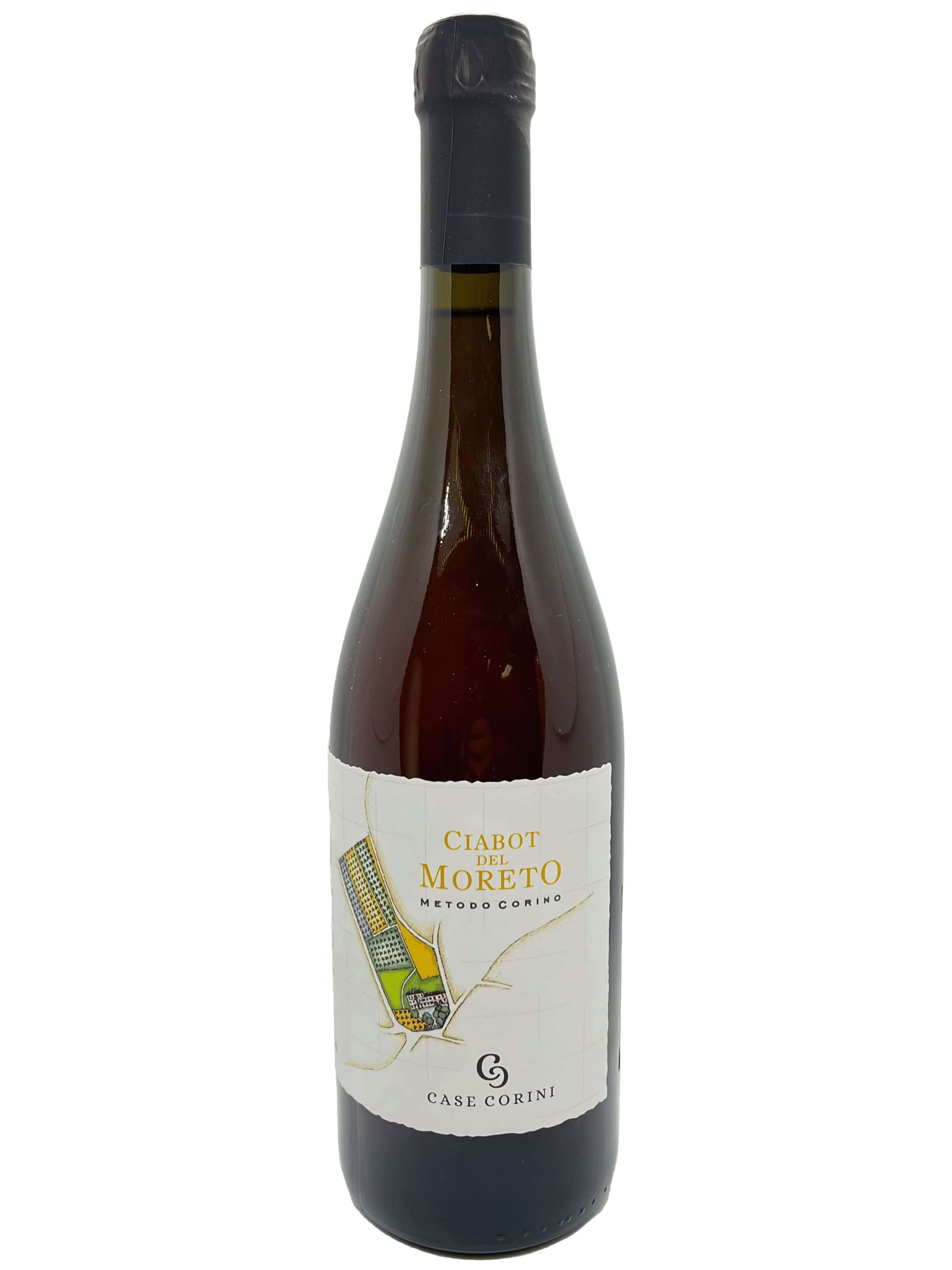The Essence of Family, Terroir & Natural Winemaking
For those who saw Guido and Luisa Corino speak at this past week’s VeroTalk heard and learned about lots of trending terms in wine right now, like natural wine, regenerative agriculture and climate change. Yet, these are 2 people, not even formally trained in agriculture, enology nor winemaking, who hold other careers and full-time jobs, responded to sommelier Peter Nelson’s ‘technical’ questions with such ease and confidence. How is that?
Guido Corino sums it up by saying “our way to make wine is older than the term ‘natural wine.’ ” Guido and Luisa Corino are the 6th generation of a Piemontese farming family, whose estate is Case Corini. Their father, Lorenzo Corino, was an acclaimed and well respected viticulture researcher who specialized in soil management, plant health and healthy ecosystems, which today is known as regenerative agriculture. Some people know Lorenzo through his book The Essence of Wine and Natural Viticulture, that encompasses his viticulture principles. Guido and Luisa grew up not only with their dad’s constant influence and teachings on viticulture, but also that of their grandparents.
Listening to them is an eye opening experience for those seeking out wines cultivated and made as naturally as possible, as well as those farming and making them. This article sums up the highlights.
Corino Family’s Story
Here’s one of the rooms of their 6th generation family farmhouse at Case Corini - it’s like you are stepping into another century.
The story starts with Biago in the middle of the 19th century, as Luisa Corino explained at our VeroTalk. He built the farmhouse where it still stands today, “a typical Piemontese farmhouse.“ It is situated between Alba and Asti, in Costigliole d’Asti. Guido and Luisa learned farming and wines from their father, Lorenzo Corino, and Lorenzo from his father, diligently and passionately passing down the knowledge and traditions from generation to generation. “We never turned away from the way to make wine” Guido and Luisa admit. They started helping with the family farm from childhood. Guido and Luisa want to keep this tradition and respect their ancestors.
Guido explains that their dad, Lorenzo, “was an agronomist, researcher and taught soil, wines and natural life,” while Guido and Luisa chose different careers, for example Guido is an architect. Guido admits that he can’t talk about soil, viticulture and wines in a “scientific way” but, if you read on, you’ll be amazed at the knowledge, and wisdom, he has to share,
The Corino Family’s Approach to Winegrowing
Luisa and Guido Corino in the ‘Bricco’ vineyard during the 1982 wine harvest.
The first ‘technical question’ sommelier Peter Nelson asked was about trellising the vine plants. Guido did not give a straight answer, which tips you off already that their approach to viticulture is different. He says “you have to look at the plant and understand how it works.” He learned this from his father, Lorenzo. His first vineyard job was pruning. Lorenzo taught Guido how to do it, and admits that it is very hard work. “You decide the life of the plant at the moment of pruning,” says Guido.
Peter continued his questions, asking if they use American rootstock, to which Guido responded yes. Guido explained that they grow the plant 4-5 years and then select buds from the best plant and graft it inside the field, continuing to select the best plants. In doing so, there are 2 principles they follow:
1) “Believe in the life of the plant. They are used to living in our place, “ explains Guido.
2) Avoid introducing plants from a new nursery. “In doing so, you change the taste of the wine, and, if something goes wrong with the rootstock or grafting, it gets more expensive to fix,” Guido further explains.
Soil Management
Case Corini vineyard is the right, and neighbor’s is the left. At one point they were at the same level. Mechanized farming has caused serious soil erosion to their neighbor’s property.
“We’re working too much with the soil… You need to work it but not too much. You need to protect the soil, and most importantly, preserve water,” Guido said while we were talking about soil management.
We were all looking at a photo (see to your left) which shows the Corino family’s vineyard property a good 5 feet higher than their neighbor’s property. “Our neighbor’s property used to be at the same height as ours. We can talk about what we’re seeing in this photo for a year,” Guido continued, mentioning that the soil erosion his neighbor has experienced is a result of mechanized farming, reminding us that “the first layer of soil is the most important.” Hence the most vital part of agriculture erodes away with modern farming techniques.
In essence, as Peter Nelson recognized, they practice regenerative agriculture, but from the 1800’s. This is the proof!
The Corino Family’s Approach to Winemaking
As we were tasting the Corino family’s wines, which, it goes without saying, are organic, biodynamic, with native yeast fermentation and no sulphites added, ‘super natural wines’, you could say, Peter Nelson, along with other VeroTalk participants, asked questions about how each wine was made. Several re-occurring themes came about, which reflect some of the principles that the Corino family follows when making natural wines:
When to Harvest
“The best flowers are in the mountains”, says Guido. He mentions this to support why they prefer to pick later. “To achieve freshness and intensity, we wait to harvest,” Guido continues.
As autumn weather starts to kick-in in mid September, it gets cooler at night, yet it is still warm during the day. This diurnal variation in temperature allows the grapes to ripen more. This means the grapes have a higher sugar content, resulting in higher alcohol levels in their wines and some residual sugar. Yet, by waiting to harvest, there is higher acidity, leading to a balanced wine, even if alcohol levels are higher. Besides, Guido explains “alcohol helps to preserve a wine, this further explains why we want to achieve ripeness.”
The Case Corini barrel room, the basement of their family farmhouse.
Long Skin Contact
“The most important thing from grapes are their skins,” says Guido. All their wines go through long macerations. “We respect extraction of grapes,” Guido adds.
Natural Fermentation with Native Yeast
A VeroTalk participant asked about their fermentation technique. Guido explains that to ferment wines with indigenous yeast, you need to give it at least a year to ferment. And “we respect the style if fermentation stops while sugars are high,” he adds. This goes to show that their wines are a true product of nature, with no intervention. It starts and ends with the fruit.
Combating Climate Change
“The last 10 years have been the hottest of our lives. We’re working too much against the climate which is why the climate is changing,” is how Guido responds to a climate change question. This increase in CO2 is all humans’ doing. Vineyards can survive in a hot and dry place. But nevertheless the 2 most important things to consider in climate change conditions is that “the soil is the most important and focus on the genetics of the vineyard, such as using indigenous varieties since introducing a new one is a bet,” Guido sustains.
‘Inconsistency is the new normal’, was the main message that came out of our discussion on climate change. In fact, when we were tasting the 2018 vintage, Guido explained how it was “not a great year” weather-wise, as it had rained a lot. Yet, despite 2018’s weather challenges, the compliments were overflowing for their 2018 red wines.
Their Wines
During the VeroTalk we tasted 4 out of the 5 Case Corini wines which Vero currently imports in:
Nilda 2019, Barbera Field Blend
Nilda was the nickname for Guido & Luisa’s grandmother credited for looking after the family’s farmhouse and wine cellar for many years. It is, in addition to the Corino’s Late Harvest Moscato Orange Wine, is a new entry to the Case Corini line up of natural wines. The inaugural 2019 vintage is a field blend from younger vines in their Achille, Barla and Bricco vineyards, with barbera making up 80%.
“It has vibrancy, nice texture, it’s crunchy with really nice dark fruit” is how one of the VeroTalk participants described this one. “It’s bright, young and fresh” is how another participant described Nilda. Peter Nelson commented on the volatile acidity he noticed in Nilda in which Guido replied “Volatile acidity helps make this wine seem more alive” to which Peter agreed, likening the effect to a Beaujolais style natural wine, saying “I think it benefits the wine”, then adding “Nilda dances.” Nice testament to their grandmother, huh?
Achille, Nebbiolo/Barbera Single Vineyard
The Achille nebbiolo & barbera vineyard.
Achille is both the name of the vineyard, with barbera & nebbiolo grapes, and the name of the previous owner. The vines were planted in the 1950’s. Guido calls Achille “clever” for a couple of reasons:
1) He was the first to introduce the nebbiolo grape to the area
2) He planted nebbiolo where barbera was not growing well.
In doing so, “Achille respected the soil. A field blend, like Achille, is a good way to do this,” Guido says.
Guido further explained how ingenious this is, saying that nebbiolo likes humidity while barbera likes hot and dry climates. Nebbiolo has a lot of tannins while barbera has a lot of acidity. So they balance each other out, especially when it comes to climate unpredictability and variations year by year.
When tasting Achille, Peter Nelson agreed with the nice balance between the barbera and nebbiolo, that it is “translated into the wine. Achille has much greater depth. It’s like the elder sibling to Nilda, having everything that Nilda has but more. The finish ‘screams’ nebbiolo. It’s slightly reductive but that’s not a problem.”
Peter went on further to say “This wine is alive. That’s the single most important element I look for in a wine. In fact, ALL of these wines are alive! They change and grow naturally and pair naturally with food.” Peter also appreciates wines, like Case Corini, that do not have added sulfites, saying “Sulfur locks everything in place. It stops a wine on its tracks. After all, who cooks broccoli and then sprays it with sulfur so it keeps in the flavor?!”
Another participant commented on how good the wine was despite the challenging vintage. It’s a testament not only to Achille’s strategy but also to the surprising result of following a 100% natural approach to making wines.
Centin, Nebbiolo Single Vineyard
Centin is the nickname of Guido and Luisa’s great grandfather. The wine is from a 70 year nebbiolo vineyard, taking first selection, or best grapes, having to predict the ripeness and phenolics at harvest time. “Nebbiolo is a life force” exclaims Peter as he’s tasting it, saying “it’s balanced”, liking the acidity, tannins and texture. Guido gave some background on making this wine saying “Sometimes tannins need more time than acidity to be balanced. You need to be patient. If the grapes are good, the wine will be good.”
An old Barbera vine at Case Corini farm & estate.
Barla, Old Vine Barbera
Like Centin, Barla is also a single vineyard and is made from the first selection of grapes, although it barbera and the vines are super old, 100 years! Barla is the name of the area where the vineyard is, and the family bought the vineyard 40 years ago.
Peter likes how the Corino’s wines never taste the same, saying “Certain elements carry through, like the fruit tone and texture. But the expressiveness, for example if its ‘loud’ or ‘quiet’, always changes. The wines are alive and brilliant. As you leave them open more layers come out.” Peter then said that he was going to wait 3 days to taste them again. Guido challenged him, saying “Wait 3 weeks!”
Try the Corino Family’s Natural Wines
Vero proudly imports Case Corini wines into the US and we sell them to businesses and consumers across the US. As you can tell from this article, these wines are something else, real unique finds. And you know where to buy best natural wine, right? If you work in the business, contact us to get pricing and organize a tasting. If you like natural wine loving consumer, you can buy in our natural wine shop online. Let’s spread the love!
Let’s close with one of Lorenzo Corino’s favorite quotes: “Tradition does not mean to celebrate ashes but to protect the fire’’ by Gustav Mahler.

